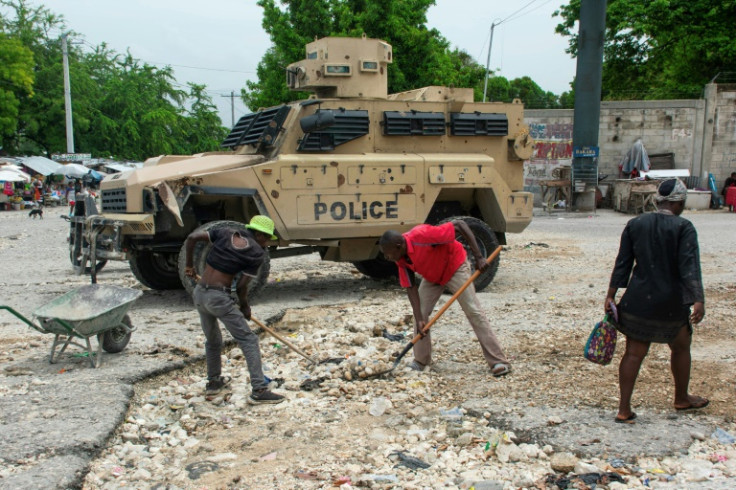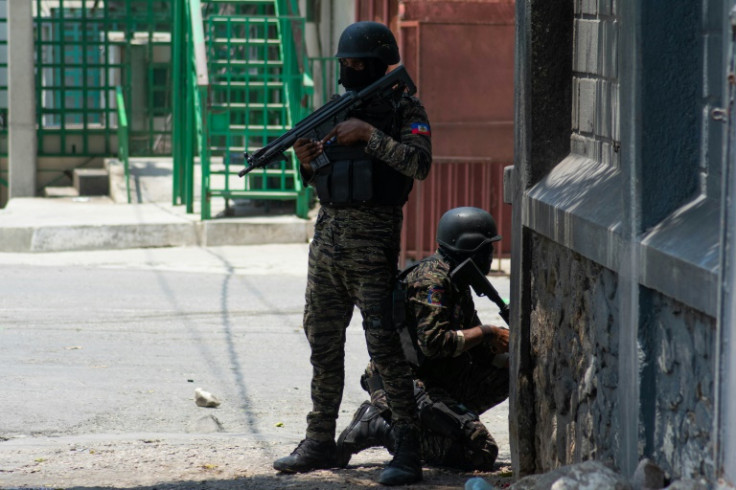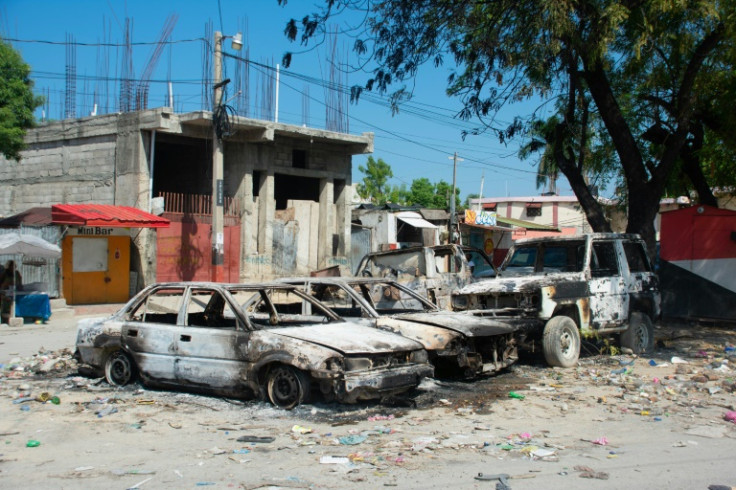Haiti Ex-senate President Named Transition Council Head

Haiti's transitional ruling council, which is leading the Caribbean nation following the resignation of its prime minister amid a wave of gang violence, chose politician Edgard Leblanc Fils as its head on Tuesday.
Announcement of the selection, which took place during a ceremony in the capital Port-au-Prince, comes after the long-awaited council was sworn in last week, marking a step forward in restoring functional government.
Leblanc Fils, a former Senate president, will serve as leader of the nine-member governing body as it attempts to restore a semblance of order.
"We have today, Tuesday April 30, a well-known president... who is going to coordinate the council according to the agreement reached between the different political entities," one of the body's members, Frinel Joseph, said during the televised ceremony.
Formation of the body, whose members were selected across Haiti's political spectrum, happened only after weeks of delay due to political squabbling.
The new council, which consists of seven voting members and two observers, came to power as the unpopular and unelected prime minister Ariel Henry submitted his formal resignation last week.
Henry had promised in March to step down once a council was installed, after armed gangs rose up and demanded his ouster.
Leblanc Fils is a member of the January 30 Political Parties Collective, an alliance that opposed the former prime minister.
One of the council's first tasks will be to appoint a new prime minister.
At the ceremony, council member Frinel said a majority of the body had proposed ex-sports minister Fritz Belizaire as prime minister but said more information would be provided later.
Haiti has no functioning parliament and has not had a president since the assassination of Jovenel Moise in 2021. Elections were last held in 2016.
The transitional body is scheduled to lead the country until fresh polls, with an elected government to take over by February 6, 2026.
A nation of 11.6 million, Haiti has suffered from poverty, political instability and natural disasters for decades. It is the poorest country in the Americas.
Its situation plummeted starting in late February as powerful and well-armed gangs that control most of Port-au-Prince and much of the country went on a rampage they said was aimed at toppling Henry.
The United Nations says some 360,000 Haitians are internally displaced, with the gang violence forcing 95,000 people to flee the capital and pushing five million into "acute hunger."
Last year, a UN-backed multinational force -- to be led by Kenya -- was tasked with deploying to the country and helping its beleaguered police rein in criminal gangs.
But Kenya then said it had to put the mission on hold until the transitional council took power.
UN Secretary-General Antonio Guterres called last week for its swift deployment.



© Copyright AFP 2024. All rights reserved.











